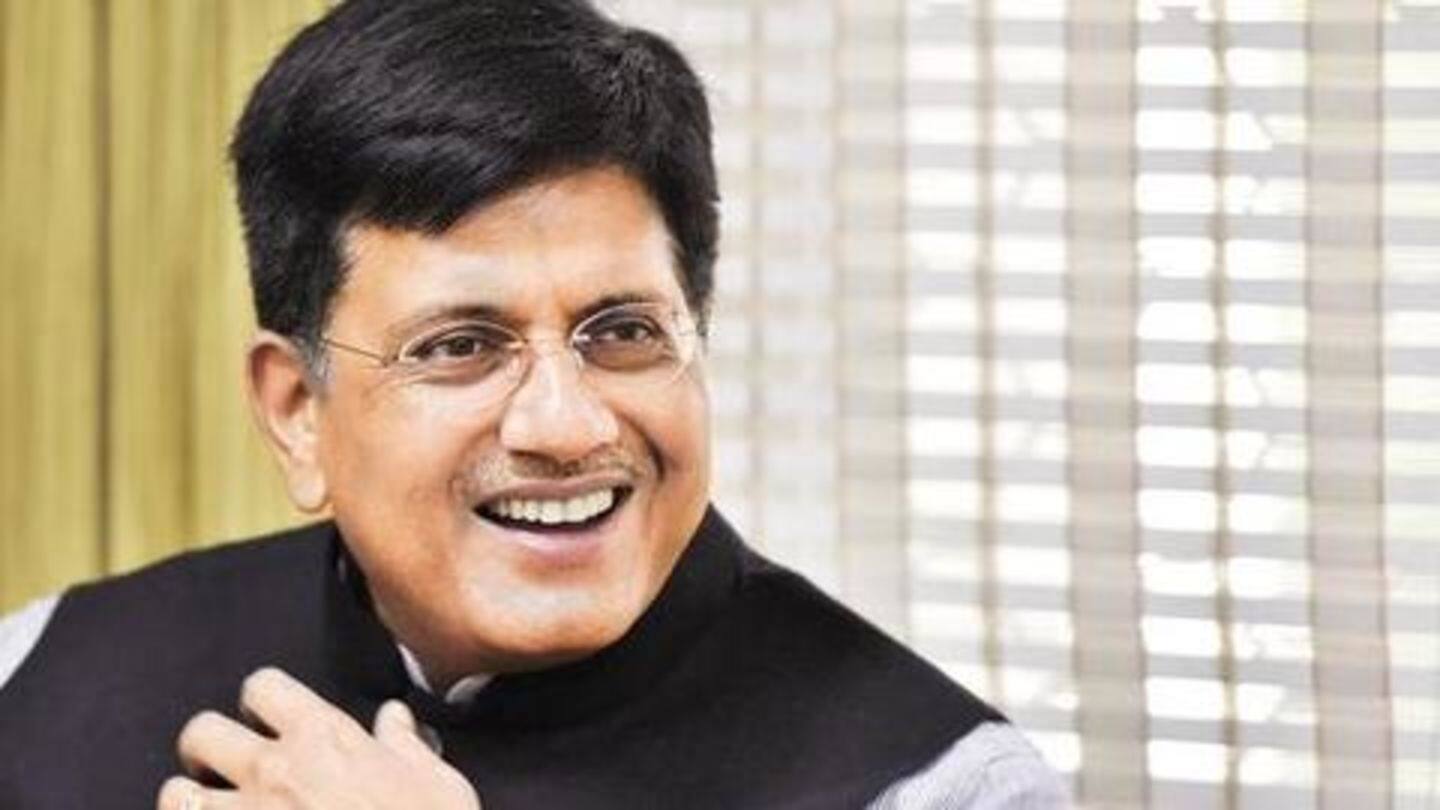
Union Budget 2019: Key expectations, traditions and other questions simplified
What's the story
The Union Budget 2019 will be presented by interim Finance Minister Piyush Goyal on Friday, February 1. As this is the last budget which Narendra Modi government will present before India goes to polls in May, the big question is: Will the Centre go the populist way to draw voters or keep it formal? Here's answering all your budget-related questions.
Importance
The budget is BJP's last chance to woo voters
After heartbreak in Hindi heartland states in December'18, BJP could use the budget to win back voters. Notably, the Opposition is also pulling out big guns ahead of crucial elections. Earlier, Congress President Rahul Gandhi promised minimum wage support to poor if his party wins. Soon reports claimed that Centre is mulling Universal Basic Income for deprived and could announce it in the budget.
Interim budget
How is interim budget different from full-fledged one?
As per the norm, in an election year, the outgoing government presents an interim budget or vote on account. Notably, the budget for a year gives the government spending rights only till March 31, the end of the financial year. For further expenditure, like salaries, ongoing programs etc., the government needs a nod from the Parliament. So, it informs the house about its estimates.
Information
The new government can change estimates in final budget
The government passes the baton of presenting the full budget to its successor. The vote on account is usually for a four-month period. It should be noted that an incoming government has the power to completely change the estimates when the final budget is presented.
Tradition
Understanding the significance of 'halwa' ceremony
In India, eating a sweet before starting something new is considered auspicious. Therefore, the printing of the budget starts after halwa ceremony. As part of this ritual, halwa is cooked in a large utensil and distributed among officials. This year the printing began on January 21. Notably, officials directly linked to the budget aren't allowed to go home or talk to family. They stay in the ministry until the budget is presented.
Reason
Have you wondered why Finance Ministers hold a briefcase?
Another tradition which defines the Union Budget is carrying a briefcase. This habit finds its roots in the British rule. In 1860, William Ewart Gladstone, the Chancellor of the Exchequer of Great Britain, carried a 'budget box'. When India came under British rule, this practice was replicated here. Indians kept up with the tradition even after independence, which is why we see Finance Ministers holding a briefcase before entering Parliament.
Salaried class
Let's talk about expectations: Here's what salaried class wants
The salaried class is expecting that the government increases tax exemption limit from Rs. 2.5 lakh to Rs. 5 lakh per annum. They are also hoping that government increases the maximum deduction limit under Section 80C. This will allow taxpayers to invest in other tax saving avenues. The Confederation of Indian Industry (CII) suggested to the government that it should rationalize income tax rates.
Information
Let's take a look at the suggestions of CII
CII suggested those earning less than Rs. 5 lakh should be exempted from tax. Those in Rs. 5-10 lakh slab should be taxed 10%. Those earning Rs. 10-20 lakh should be taxed 20% and those earning more than Rs. 25 lakh should be taxed 25%.
Start-ups
Moving beyond 'Startup India': Start-ups want clarity on Angel Tax
PM Modi may have launched 'Startup India' but entrepreneurs have lot more expectations from the Centre. The entrepreneurs hope the budget provides more clarity on Angel Tax, tax on ESOPs and disbursal from Fund of Funds. They also hope Minimum Alternate Tax is abolished. Start-ups also want the Centre to ease GST rates for fund managers, which is currently pegged at 18%.
7th Pay Commission
Central government employees want salary hike
For a long time now, the Central government employees have been demanding a salary hike beyond the recommendations of the 7th Pay Commission. The Commission recommended increasing the maximum salary from Rs. 90,000 to Rs. 2.5 lakh. Employees have been demanding hike in minimum pay scale from Rs. 18,000 to Rs. 26,000. While the Centre may provide salary hike, it might not pay arrears.
Smartphone industry
Thrust to 'Make In India': Understanding expectations of smartphone industry
The smartphone industry hopes the Centre announces provisions which will benefit imports and exports. Ashwin Bhandari, CEO, iVOOMi, said favorable schemes will make India a manufacturing hub. "It would be great to see the budget making provisions for incentives for contract manufacturers (LCD panels, battery cells, moldings, and the likes of it), to achieve comprehensive growth at a large scale, (sic)" he told DNA.
Health sector
Government should reduce GST on health insurance premium
It's a travesty affordable health care isn't accessible to a large section of Indians, which is why there are huge expectations from this budget. Experts believe the GST rate on health insurance premium should be brought from 18% to 12%. Many are hoping that government increases tax exemption on preventive health check-up from Rs. 5,000 to Rs. 20,000 under Section 80D of I-T Act.
Rural sector
As far as rural-sector is concerned, Centre could go overboard
With elections around the corner, the Centre is expected to announce big-ticket reforms for the rural sector. According to Reuters, the government is likely to earmark Rs. 1.3 lakh crore for Ministry of Rural Development. The government could allocate Rs. 60,000 crore for MGNREGA, the report added. The 70 million beneficiaries of MGNREGA could also get a pay hike, sources told Reuters.